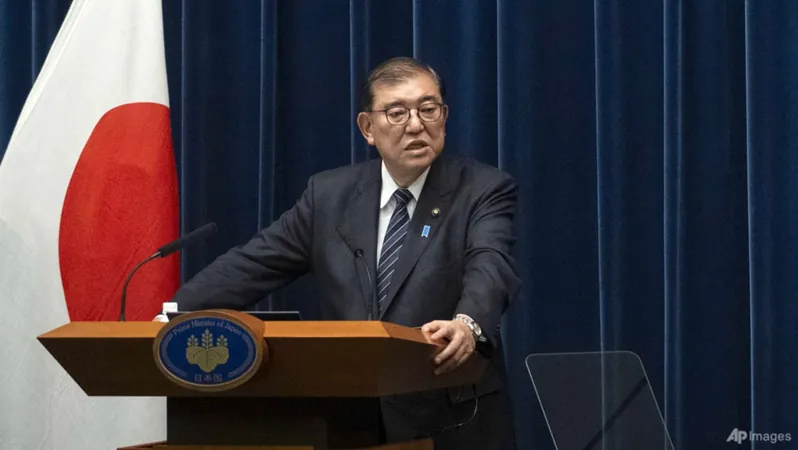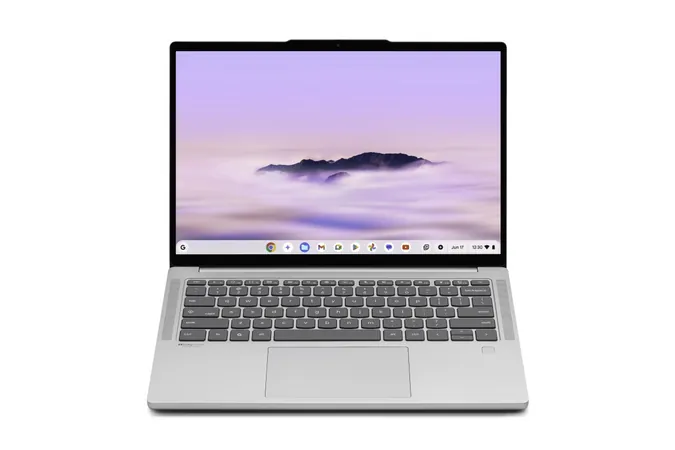
Japan's PM Urges US to Clarify Blocked Nippon Steel Deal as Investment Fears Mount
2025-01-06
Author: Wei
Introduction
In a significant diplomatic development, Japan's Prime Minister Shigeru Ishiba has called on the United States to clarify its stance regarding the recent decision to block Nippon Steel's proposed $14.9 billion acquisition of US Steel. This request comes amid rising anxieties in Japan's industrial sector about the potential implications for future investments in the United States after President Joe Biden cited national security concerns.
The Decision and Its Repercussions
The decision by President Biden, made just before he concludes his presidency, has stirred criticism from both Nippon Steel and US Steel, as well as Japan's government. Biden's administration cited the immediate need to protect domestic industries, a move that has created concern about the broader investment climate between the two nations.
Call for Clarification
Ishiba expressed that the backlash within Japan’s industrial community cannot be ignored. He emphasized the importance of transparent communication from Washington on why the acquisition was seen as a national security threat. "It is something we have to take seriously," Ishiba remarked, stressing the vital nature of Japan-US investments, where both countries stand as each other's top foreign investors.
US Government Panel's Stance
A US government panel failed to reach a consensus on the deal, which led to Biden himself making the controversial call. Ishiba insisted that while the Japanese government should remain neutral regarding the management of companies under US law, there is an urgent need for the US to dispel any uncertainties surrounding future investments.
Responses and Reactions
As Nippon Steel plans to address the media soon, the implications of this decision are already resonating within both countries. Biden's administration has faced criticism from various sectors, with the United Steelworkers union hailing the decision as a necessary measure to protect American jobs. Yet, Nippon Steel and US Steel argue that the ruling is a blatant violation of legal standards, with Japan's industry minister labeling it as "incomprehensible."
Bipartisan Support in the US
The deal's rejection has garnered bipartisan support in the US, reflecting a nationwide consensus that foreign control over significant domestic assets poses a risk to national security. The implications do not end here; the US Chamber of Commerce cautions that such a decision could send shockwaves through international investments in America, potentially discouraging future partnerships with countries like Japan.
Future Outlook for Nippon Steel
Despite this setback with US Steel, analysts note that Nippon Steel is likely to continue pursuing growth opportunities within the US market and will focus on expanding its production capacity, particularly in regions like India. SBI Securities analyst Ryunosuke Shibata indicated that Nippon Steel's growth strategy remains intact, suggesting that they may eventually explore other avenues for investment in the United States.
Conclusion
As the situation continues to unfold, Japan's influential business groups are echoing calls for stronger international economic partnerships, advocating not only for US-Japan ties but also for collaborative efforts with other like-minded countries to diversify their economic security. This ongoing saga signals a pivotal moment in Japan-US relations as both nations navigate the complexities of global investment and trade dynamics.



 Brasil (PT)
Brasil (PT)
 Canada (EN)
Canada (EN)
 Chile (ES)
Chile (ES)
 Česko (CS)
Česko (CS)
 대한민국 (KO)
대한민국 (KO)
 España (ES)
España (ES)
 France (FR)
France (FR)
 Hong Kong (EN)
Hong Kong (EN)
 Italia (IT)
Italia (IT)
 日本 (JA)
日本 (JA)
 Magyarország (HU)
Magyarország (HU)
 Norge (NO)
Norge (NO)
 Polska (PL)
Polska (PL)
 Schweiz (DE)
Schweiz (DE)
 Singapore (EN)
Singapore (EN)
 Sverige (SV)
Sverige (SV)
 Suomi (FI)
Suomi (FI)
 Türkiye (TR)
Türkiye (TR)
 الإمارات العربية المتحدة (AR)
الإمارات العربية المتحدة (AR)